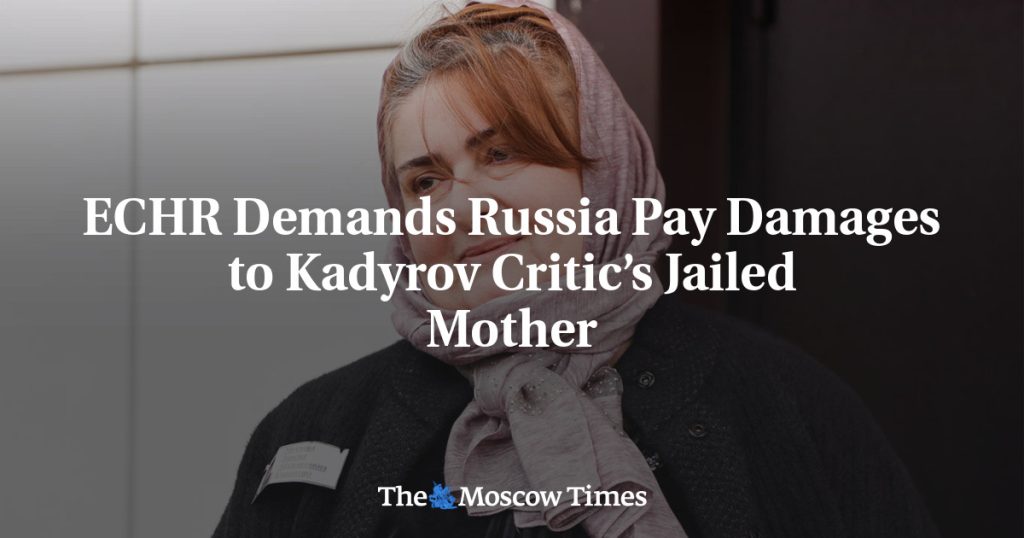The European Court of Human Rights (ECHR) has ordered Russia to pay 52,000 euros in damages to Zarema Musaeva, the mother of a prominent critic of Chechen leader Ramzan Kadyrov, Abubakar Yangulbaev. Musaeva was violently detained in Nizhny Novgorod and forcibly taken to Chechnya in January 2022. She was sentenced to five years in a prison colony on charges of fraud and assaulting police. The ECHR ruled that Musaeva’s arrest was arbitrary and intended as retaliation against her family, who were involved in human rights work and opposition activities in Chechnya. The court also noted that Russian authorities ignored threats made by Kadyrov and his allies to “hunt down” the family and “cut their heads off.” The rushed administrative proceedings against Musaeva, conducted without legal representation while she was unwell, violated fair trial guarantees.
The court also ordered Russia to pay 6,500 euros each to Musaeva’s husband Saidi Yangulbayev, a retired Chechen Supreme Court judge, and their daughter Aliya Yangulbayeva for injuries suffered during Musaeva’s detention. Chechen security officers had attempted to arrest Yangulbayev but failed due to his judicial immunity. Civil rights activists criticized Musaeva’s imprisonment as a retaliation for the political activities of her three sons, who are all vocal critics of Kadyrov. Russia became a signatory to the European Convention on Human Rights in 1988 but was excluded from the Council of Europe, which includes the ECHR, after its 2022 invasion of Ukraine. As of September 2022, Russian authorities are not required to ensure convention rights, but they must still be held accountable for violations committed while they were a signatory.
The ruling by the ECHR highlights the targeting of individuals for their family members’ political activities, a tactic used by authorities to silence dissent. The court’s decision to award damages to Musaeva and her family sets a precedent for holding states accountable for human rights violations, particularly in cases where individuals are targeted as a form of retaliation. The ECHR’s acknowledgment of the threats made by Kadyrov and his allies against Musaeva’s family underscores the need for states to protect individuals from such threats and ensure their safety and well-being.
The case of Zarema Musaeva raises concerns about the treatment of individuals who are targeted for their family members’ activism or political views. The ECHR’s ruling against Russia for Musaeva’s arbitrary arrest and detention sends a message that such actions will not go unpunished. By ordering Russia to pay damages to Musaeva and her family, the court reaffirms the importance of upholding fair trial guarantees and holding authorities accountable for human rights violations. The case also sheds light on the challenges faced by activists and critics of authoritarian regimes, who often face intimidation, harassment, and imprisonment as a result of their work.
The ruling in Musaeva’s case serves as a reminder of the importance of international human rights mechanisms in holding states accountable for violations committed against individuals. The ECHR’s decision to award damages to Musaeva and her family underscores the need for states to respect and protect the rights of all individuals, regardless of their political beliefs or affiliations. The court’s judgment also reaffirms the role of international human rights bodies in promoting justice, accountability, and respect for human rights worldwide. As the case of Zarema Musaeva demonstrates, individuals must be protected from arbitrary arrest, detention, and other forms of reprisal for exercising their rights to freedom of expression, association, and peaceful assembly.


